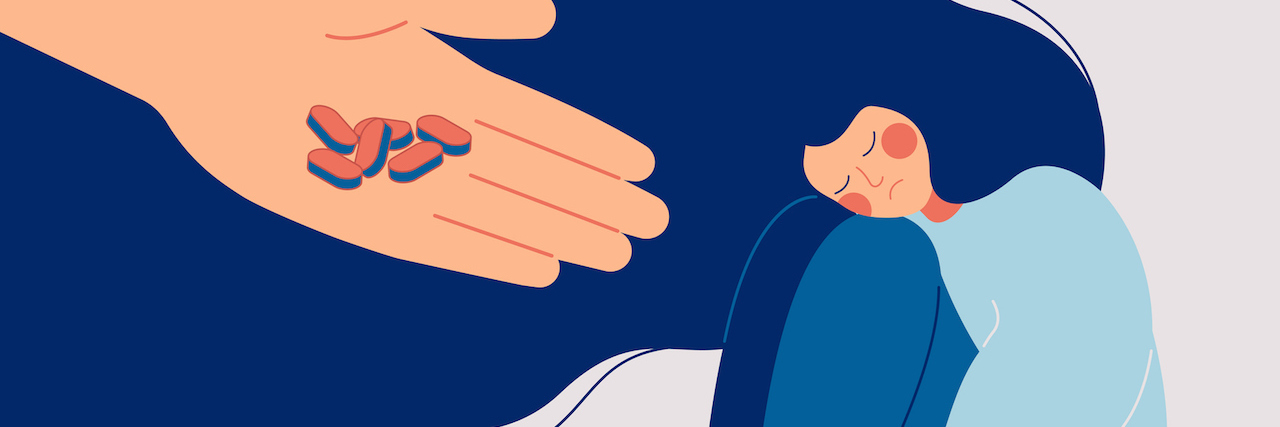This is probably one of the most important articles I will ever write about Parkinson’s and the medication used to treat this progressive disease. This article needs to be shared and this issue needs to be better addressed by the medical and mental health community. Unfortunately, many patients feel so much shame about the compulsivity side effects they never speak a word about them until they have lost everything — their savings, their homes, their families and their dignity.
What is Parkinson’s Disease?
What is causing this compulsive behavior? It is a common class of drugs that are often prescribed first line for patients with Parkinson’s and/or restless leg syndrome. This group of medications are called “dopamine agonists.” A dopamine agonist is a medication that activates dopamine receptors in the brain and mimics dopamine neurotransmitters — messengers between our brain cells. An agonist is like a pseudo dopamine, since a person with Parkinson’s doesn’t really have any dopamine left to work with. In fact, by the time someone shows the motor symptoms of Parkinson’s they have usually lost 60 to 80 percent of their dopamine.
Why is dopamine so important? Dopamine is critical to smooth muscle movement, initiated movement, thinking, emotions, learning, speech, motivation, multi-tasking and unfortunately, addictions. How does dopamine affect addictions? When someone uses a drug like cocaine, nicotine or heroin, dopamine is produced at very high levels causing that “high” — which then causes people to seek that high out over and over again. That is how the compulsive behavior can occur — if you are replacing dopamine at high levels, that state of euphoria (like being high on drugs) can cause very “manic” types of behavior. Mania is a form of mental illness that often is marked by impulse control, inability to sleep, inability to focus and disregard for consequences. Very similar to the possible side effects of these dopamine agonists.
As great as these medications are, there is a very dark side to them. If you have been prescribed this type of medication or your loved one has, please be aware that compulsive behaviors are a very real problem. Especially if you have had issues with compulsivity. I have heard many stories from friends in support groups. One of my friends told me she spent over $30,000 on trips and camera equipment. Another shopped constantly on Amazon and QVC maxing out her credit cards not once, but twice, until she realized it was this medication. An older gentleman reported he was sexually inappropriate with a woman he did banking with for years and was so embarrassed he never set foot in his bank again. A friend just told me about “one of the nicest men she knows” and how an agonist made him gamble away his family’s life savings, he lost his home, got a DUI and almost lost his marriage until they figured out it was his medication.
There are countless stories of people developing an insatiable sex drive (hypersexuality). Some of the spouses are thrilled with this side effect, while others are devastated because some patients are going outside of their relationships to satisfy constant urges. It seems like gambling, shopping and sex addiction are the top three compulsive behaviors I’ve heard about.
If you or someone close to you has been prescribed one of these medications, please watch out for an increase in compulsivity and keep tabs on credit card bills and checking accounts. Also, please tell your neurologist if you have a history of gambling, shopping or sex addiction since they may want to avoid this class of drug entirely. Most importantly, if you are living with shame and guilt about a particular behavior that started or has been made worse when you started taking an agonist, call your neurologist immediately and report this to them. Do not be afraid, your doctor cannot help you if they don’t know what you are struggling with. Never stop an agonist abruptly. You can develop a condition called Dopamine Agonist Withdrawal Syndrome (DAWS). Always discuss this with your physician first.
The most important takeaway is that it is not your fault. This is a common and dangerous side effect. Please let your friends, family and/or caregivers know before the shame makes it too hard to talk about it. There are hotlines that can help as well:
- Gamblers Anonymous: (626) 960-3500
- Sex Addicts Anonymous: (800) 477-8191
- Debtor’s Anonymous: (800) 421-2383
If this article resonates with you, take back your control today. You are not alone and so many people in the Parkinson’s community can relate to your struggle. There are so many Facebook groups for people with Parkinson’s (PWPs) too. I founded two — Long Island Parkinson’s Support Network for PWPs who live on Long Island and Pretty PowHERful Parkinson’s, an international group for women. I am also an administrator for a very active and supportive international group called Never Give Up Parkinson’s and Dystonia. This amazing group is open to PWPs, caregivers and people with dystonia (a rare muscle disease that often is part of Parkinson’s but also can be a standalone disease). Please join a support group to help navigate this very difficult topic. Remember, this is not your fault and the first step to fixing this is telling someone you are struggling. Keep fighting and never give up!
Getty image via Ponomariova_Maria

